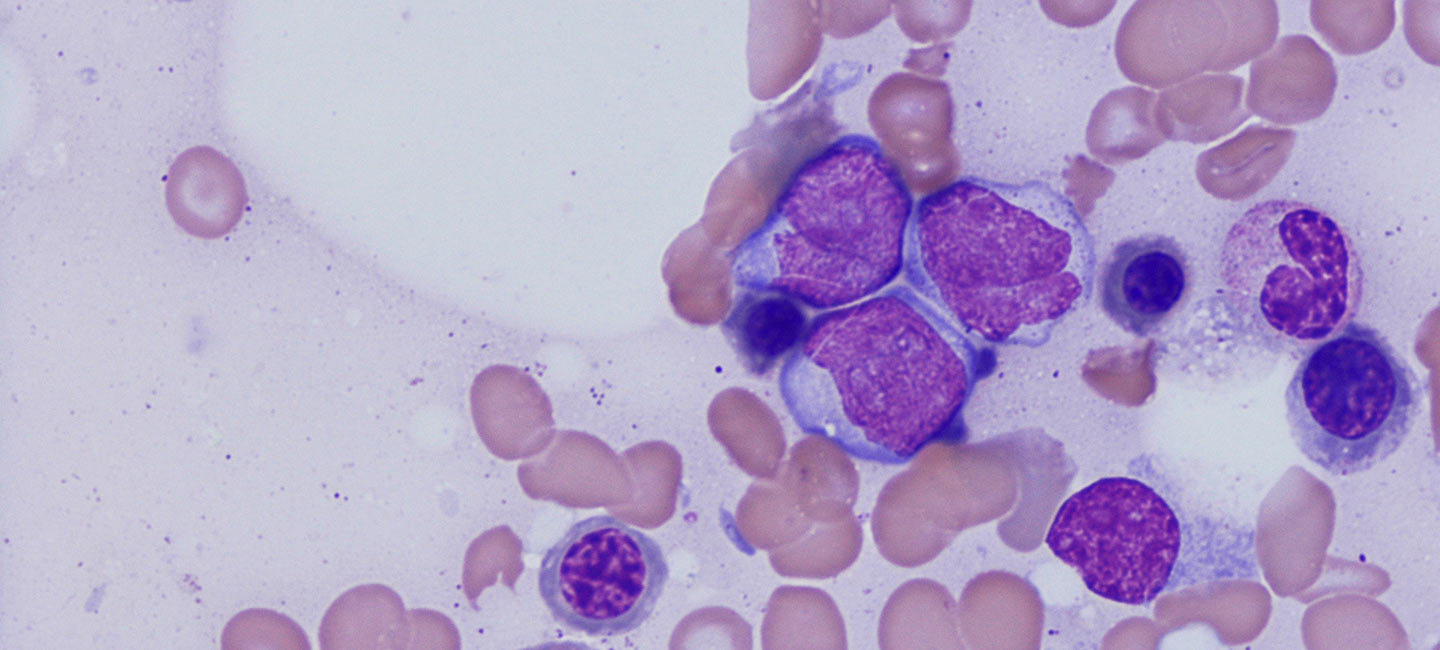New Combination Therapy Shows Promise for Leukemia Patients
Roughly 20,000 Americans will be diagnosed with acute myeloid leukemia (AML) this year. It is a cancer that begins in the bone marrow, most commonly from immature white blood cells, and can quickly move into the blood and other parts of the body. Chemotherapy has been the standard of care for this group of patients for decades; however, researchers have been working to develop new, more targeted therapies for AML and myelodysplastic syndromes (MDS), a type of cancer in the bone marrow that can often develop into AML.
One such investigational therapy combines magrolimab, a monoclonal antibody, with the chemotherapy agent azacitidine. Magrolimab blocks CD47, a macrophage immune checkpoint that produces a “don’t eat me” signal in malignant cells. Blocking CD47 triggers the immune system to recognize and destroy cancer cells.
Results from the phase 1b trial, which were presented during the American Society of Hematology Annual Meeting, found that AML patients responded well to the combination therapy. Out of the 43 patients treated, 27 (63%) responded to the treatment. Eighteen (42%) had a complete response, meaning absence of detectable cancer.

Dr. David Sallman, Assistant Member, Malignant Hematology Department
“We are encouraged by the response rates we are seeing using magrolimab and azacitidine as a first-line therapy for patients with high-risk MDS and AML, especially among those with TP53 mutations,” said Dr. David Sallman, one of the study investigators and assistant member of the Malignant Hematology Department at Moffitt Cancer Center. “There is a significant lack of effective treatments for this patient population.”
While TP53 mutations are only seen in about 10% to 20% of MDS and AML patients, this group of patients has more aggressive disease and poorer outcomes.
In the phase 1b trial, 69% of AML patients with TP53 mutations responded to the therapy with 45% of those having a complete response and overall a favorable survival versus historical treatments.
The U.S. Food and Drug Administration has granted fast track designation to magrolimab for the treatment of MDS and AML along with breakthrough designation for MDS. This provides an expedited review of the new drug application after it is filed with the FDA for approval.
A phase 3 study investigating magrolimab in combination with azacitidine has been initiated for higher risk MDS patients and a separate study in patients with TP53-mutant AML will launch in 2021.



